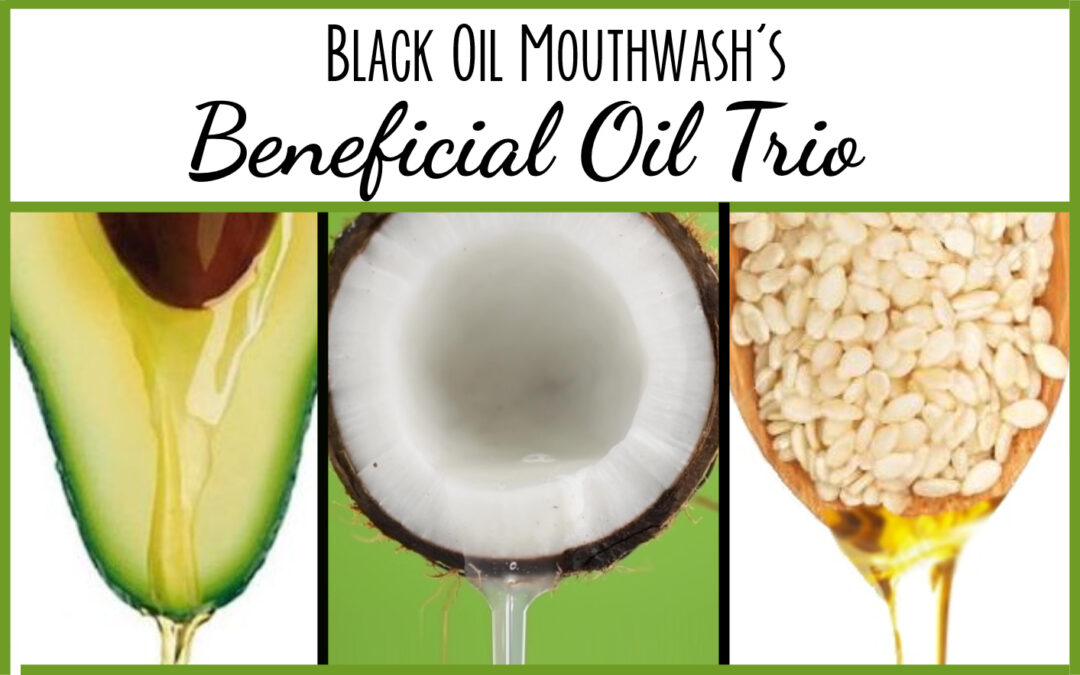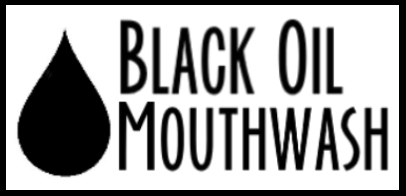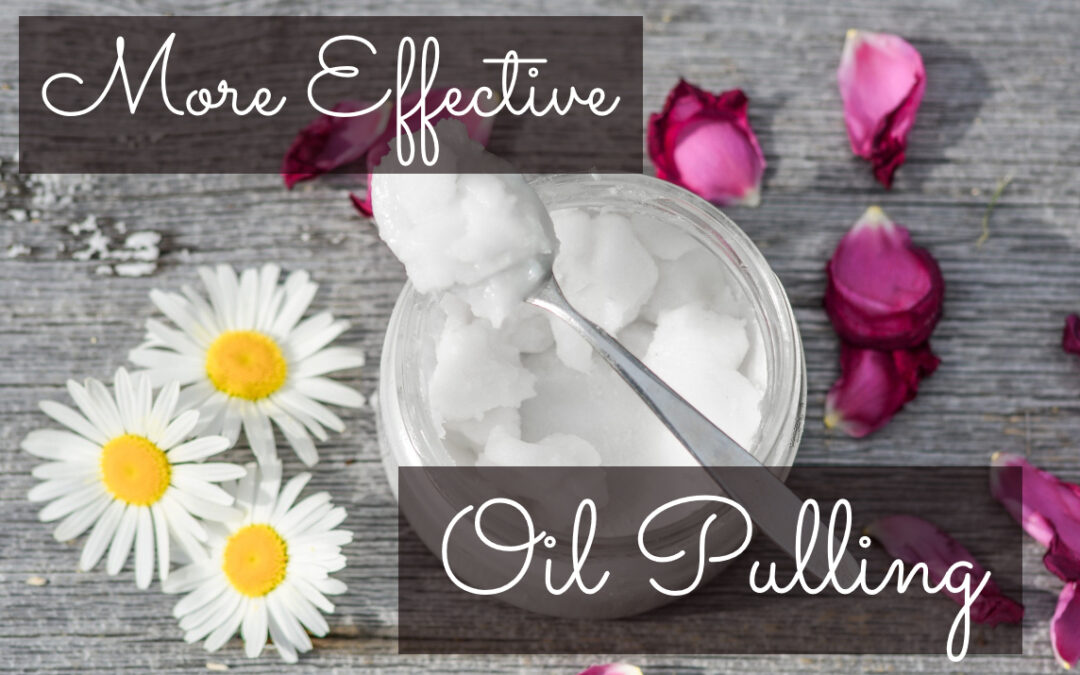
Black Oil Mouthwash’s Beneficial Oil Trio
Here’s a question. When oil pulling, does it matter what kind of oil you use?
Yes and no. I’ll explain…
Any oil is better than no oil. Plaque’s bio-film is oil soluble and it doesn’t care, it’s going to break down whether you use coconut, sunflower, olive, walnut, or whatever’s in your pantry. And don’t forget about your mucosa tissues, they crave oil and they too, don’t care, just give ’em the oil.
That being said, when I was formulating Black Oil Mouthwash, I wanted to make it extra special and I chose these oils, in equal portions, for the golden trio:
Sesame Oil
For thousands of years people in India and Asia have been swishing with sesame oil. Evidence has shown that even the ancient Egyptians swished with the slippery stuff. Did they know that sesame oil contains potent levels of anti-oxidants, that it’s mineral-rich, and that the high levels of vitamin K help heal damaged gums? Or did they just use sesame because that was geographically feasible? Either way, it turned out to be a wonderful choice.
Coconut Oil
This oil wins the popularity contest for “most swished with” on internet blogs. It’s everywhere. People are out there putting spoonfuls of solid oil in their mouths, waiting for it to melt, and then swishing with it. Well, good for them and their teeth. But for me, I’ll pass. I need a liquid to swish with and if you’re anything like me, you do too. However, not to be overlooked, is MCT coconut oil, a solid alternative to solid coconut oil.
Black Oil Mouthwash’s MCT oil is fractionated coconut oil, which means that it was processed (naturally) to remove the coconut solids, leaving only the light-weight goodness that’s so much easier to swish with. This terrific oil is anti-microbial and anti-fungal, reducing yeast and bacterial growth, and it also contains iron to help transport oxygen to cells.
Avocado Oil
When I discovered the wonderful properties of avocado oil for swishing, my search for the perfect trio was complete. The taste is light, but the oil is rich. Avocado oil is well known for its anti-inflammatory and anti-oxidant properties. It’s high vitamin E levels, help soothe and heal irritated gums. It contains chlorophyll, a natural source of magnesium which is important for tooth enamel and the prevention of gum disease.
A Powerful Combo
Black Oil Mouthwash’s exquisite oil blend is a triple-threat to plaque and gum disease and you’ll feel it the very first time you swish. Now take all that oily goodness and add in activated charcoal, plaque-busting xylitol, and essential oils, and you’ll get a mouthwash that’s worthy of praise to anyone who will listen. Go ahead and show off that great smile!



Recent Comments